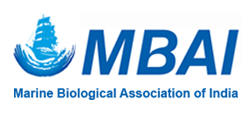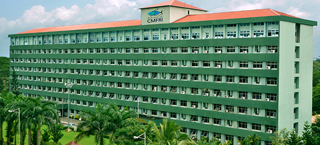About COMAD
The Marine Biological Association of India is organizing a National Conference on Marine Debris (CoMaD 2018), in April 2018. The oceans and coastal ecosystems are facing a new threat - the Marine Debris. Most researchers believe that this is worse than any other problem faced by aquatic ecosystems. Debris ranging from cigarette butts to large plastic sheets have emerged as the latest threat to sustainability of coastal and marine ecosystem, endangering the fauna, flora, the physical and chemical processes and ultimately the livelihood of thousands of fishers and farmers. Not only plastics, even other items like glass and metal which can be easily recycled also are thrown away as trash.
Recent studies have shown that there are 5.25 trillion pieces of plastic debris in the ocean. Of that mass, 269,000 tons float on the surface, while some four billion plastic microfibers per square kilometer litter the deep sea. The amount of plastic waste entering the ocean from land exceeds 4.8 million metric tons (MMT) per year and may be as high as 12.7 MMT.
Recent research on microplastics, which are pieces of plastic debris between 0.3 and 5 millimeters and their role in the transfer of persistent organic pollutants to marine food webs has opened a new dimension to plastic pollution. As plastics get smaller and smaller, they release chemicals. One of those chemicals has been identified as bisphenol A which can interfere with animals’ reproductive systems. Top predators such as sharks or dolphins, which eat the fish, accumulate most of these chemicals. In India, micro and macro plastics have been observed at all trophic levels starting from sardines to tunas and sea birds.
Careless discard of torn nets leading to “ghost nets” or derelict fishing gear (DFG) has started impacting fishes, birds and marine mammals. Turtles entangled in ghost nets and with plastics stuck around their neck and beak are common in the Indian Ocean. Even discarding traps and pots have transformed productive benthic habitats to grave yards.
Plastic litter as well as metal and glass litter in marine ecosystems are completely avoidable problems. Through increased effort, inappropriate disposal of waste plastics can be prevented through a combination of education, product design, incentives, legislation and enforcement.
Research on marine debris in the Indian sub-continent is limited. Similarly public awareness on Marine Debris and the severity of the impacts on the sustainability of our coastal and marine ecosystem is low. Considering the fact that the marine debris problem can even completely destroy our productive ecosystem, if left uncontrolled, the Marine Biological Association of India is organising a National Conference on Marine Debris at Kochi on 11-12 April 2018.



